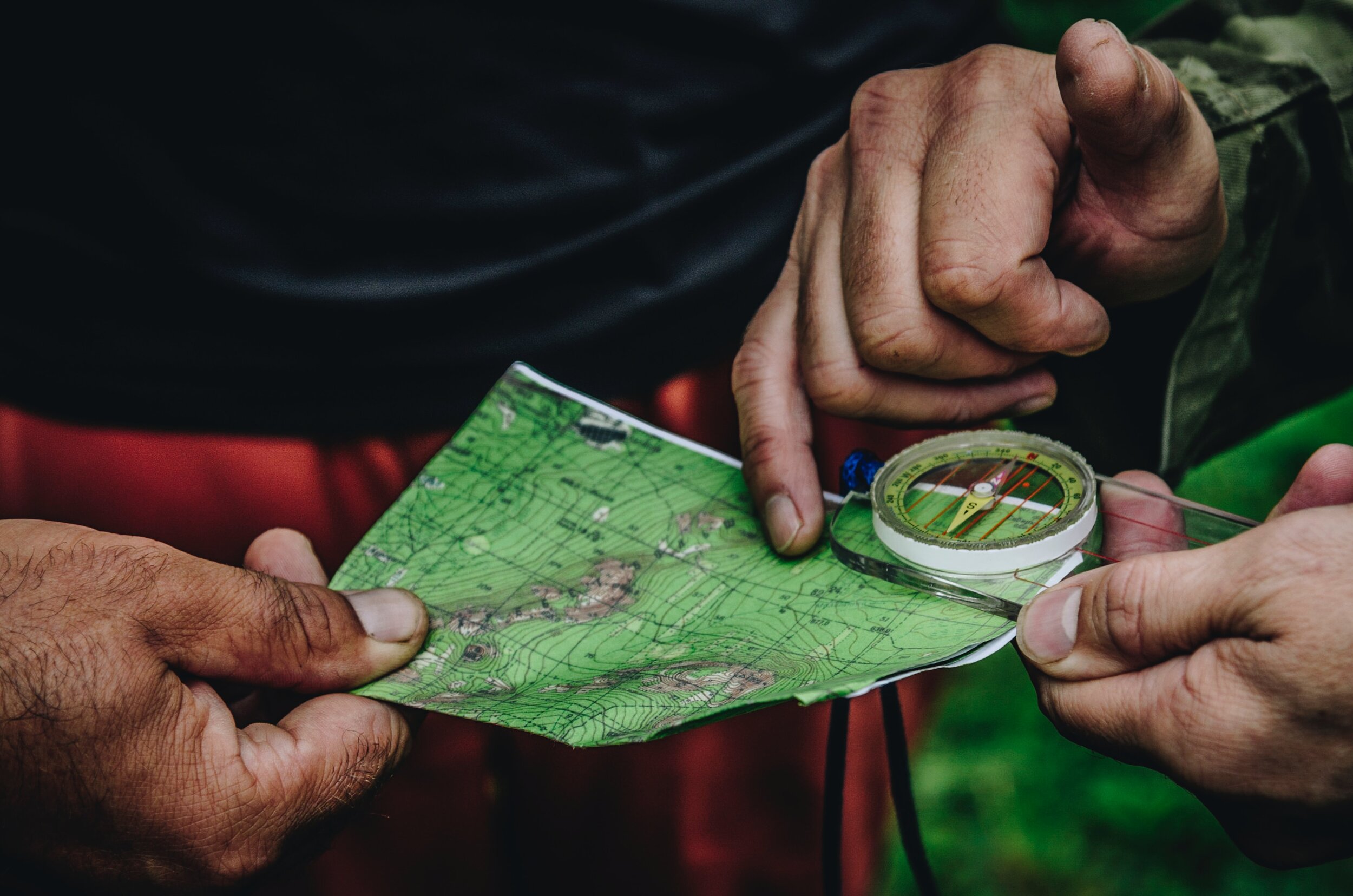A Guide for Your Journey
Last quarter, I wrote What is the point of therapy? where we unpacked a bit of the mystery of therapy. At that time, I ended with a question about what guides your process of change or growth, what guides your journey?
These days we are inundated with information and demands for our attention, affection, and time that it is easy to get bogged down and feel lost. I am convinced that all of our “busyness” really just means we are distracted. Distracted from what matters and consequently, we lose sight of the path. This is a moment where it is helpful to intentionally pause, pull out your map and compass and get your bearings. Orient yourself.
What are some of the tools you need?
Values. The dictionary defines values this way: “the regard that something is held to deserve; the importance, worth, or usefulness of something.” They are often seen as guiding principles. There’s a lot on the internet about this, so I won’t dwell on the matter. Matthew McConaughey (yes, I just referenced an actor) posted a short video on Instagram on the topic not too long ago. You can see it here. If you’re not sure what you value, there are handy tools to help you discover that, often through word selection like this website.
Mindfulness is defined as awareness of the present moment without judgment and without attachment or pushing away. The awareness can be internal, such as noticing thoughts, bodily sensations, and/or external, such as observing your surroundings. This awareness, with practice, helps us to become aware of our thoughts and emotions as well as our patterns and reactions and can help us discern what is working for us and what is not.
But it’s not enough to know your values and increase your awareness. We must let them guide our life—our decisions, actions, and relationships— but as Ryan Holiday reflected in a Daily Stoic video, living out your values is harder than you think. And it’s difficult because much of what we encounter is outside of our control, things don’t go according to plan and that is painful.
I find it helpful to think about it through the lens of Donald Miller's work on story and storytelling. He points out that all good stories follow the same storyline: there is a character who wants something, but there is an obstacle to what they want, so they need a guide (another character) to give them a plan. Then the character has a choice to follow the plan or not, which determines the outcome. Notice the themes: things don’t go according to plan, it is painful, and we need help to follow or get what we want.
I think there are at least three things we need in order to increase our odds of living our values; those three things are:
Solitude - self in relation to self - I recently listened to a podcast called “Finding Ease in Aloneness” which I highly recommend. Stephen Batchelor was interviewed on the concept of solitude. He describes solitude, not as a place, but as being at home in oneself, it grounds us in ourself. Here’s a quote from the interview:
“It has to do with refining our capacity to see where our impulses are coming from, to what extent those impulses are just driven by conditioning and habit and fear, and to what extent we can somehow open up a nonreactive space within us from which we can respond to the world — respond to our own needs, too, but in a way that’s not driven by familiar habit patterns, which are often rooted in attachment and fear and other things. So solitude, the practice of solitude, is the practice of creating an inward autonomy within ourselves, an inward freedom from the power of these overwhelming thoughts and emotions.”
Solitude helps us cut through the noise to find what is true and authentic about me which helps me relate and connect better with others.
Relationships - self in relation to other- Donald Miller highlighted our need for a guide. Stephen Batchelor highlights a paradox of solitude of self and other. We are social creatures. And so, our relationships influence our habits and values.
Faith - self in relation to God - Because as we do the difficult work of becoming our authentic self, shedding what isn’t true of me, cultivating what is true of me, what is the ruler by which we judge what is authentic and true? I am no meditation expert, but I know am prone to deceive myself (and so are you), so I need something TRUE, something outside of me. It often gives us perspective and comfort as well.
I can’t help but notice the above have a quality of slowing, which fosters presence, awareness, and intimacy – with self, others, and our faith. So, stop, pull out your map and compass. Orient yourself to what and who matters, then proceed forward on your journey. And for the record, just like any journey through the wilderness—whether the backcountry or your own interior landscape—remember we have to pause and pull out the map often.

